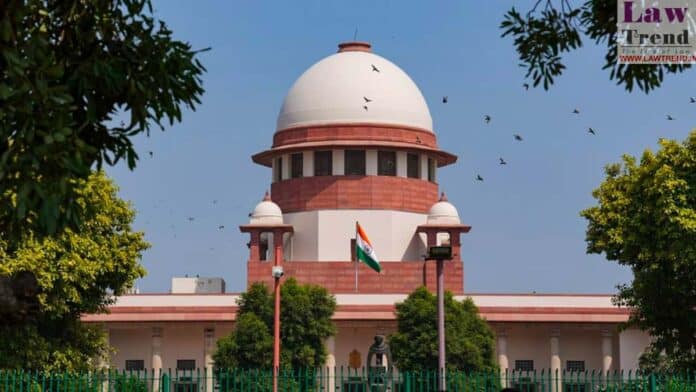The Supreme Court said on Monday there is no “automatic presumption” that a custodial statement has been extracted under compulsion and the statement of an accused recorded in police custody can be split into components and separated from the admissible portions.
The apex court’s observations came in its verdict confirming the March 2020 judgement delivered by the Karnataka High Court which had convicted and sentenced a man to life imprisonment in a murder case.
A bench of Justices Surya Kant and Aravind Kumar referred to section 27 of the Indian Evidence Act, which pertains to how much of information received from accused may be proved, and said the provision permits the derivative use of custodial statement in ordinary course of events.

“There is no automatic presumption that the custodial statements have been extracted through compulsion. A fact discovered is an information supplied by the accused in his disclosure statement is a relevant fact and that is only admissible in evidence if something new is discovered or recovered at the instance of the accused which was not within the knowledge of the police before recording the disclosure statement of the accused,” the bench said in its 38-page verdict.
It said, “The statement of an accused recorded while being in police custody can be split into its components and can be separated from the admissible portions.”
The apex court noted such components or portions, as were the immediate cause of the discovery, would be legal evidence and the rest can be rejected.
“It is a trite law that in pursuance to a voluntary statement made by the accused, a fact must be discovered which was in the exclusive knowledge of the accused alone. In such circumstances, that part of the voluntary statement which leads to the discovery of a new fact which was only in the knowledge of the accused would become admissible under section 27,” it said.
The bench said such statement should have been voluntarily made and the facts stated therein should not have been in the knowledge of others.
The top court was dealing with an appeal filed by a man who had challenged the high court verdict, which reversed the trial court order acquitting him in the case and convicted him of offences, including under section 302 (murder) of the Indian Penal Code.
According to the prosecution, the accused was working as a labourer at the farmhouse of Jose Kafan in Karnataka, and in December 2011, he murdered him when he was sleeping.
It was alleged the accused then stole things from the farm house and also attempted to sell the land to make undue monetary gain.
The police had said the accused, with a deliberate intention to destroy the evidence, had hid the body in a pit. The son of the deceased later lodged a missing complaint after which an inquiry was conducted.
It had said the accused confessed to the crime and showed where the body had been concealed in the presence of witnesses.
The apex court noted in its verdict that the accused had claimed innocence before the trial court.
After the trial court acquitted him, the state had preferred an appeal before the high court, which reversed the finding and convicted the accused.
In its verdict, the apex court observed it need not be re-stated that it would be open for the high court to re-appraise the evidence and conclusions drawn by the trial court and, in the case of the judgment of the trial court being perverse, the high court would be justified in interfering with it or reversing the findings.
“The other surrounding circumstances which prove the accused being guilty of the offence beyond reasonable doubt are the recovery of the articles belonging to the deceased and sold by the accused which were recovered on the strength of the voluntary statement of accused…,” the bench noted.
“We do not find any material irregularly having crept in the judgment of the high court calling for our interference,” it said, while dismissing the appeal.







